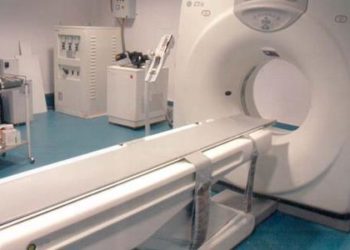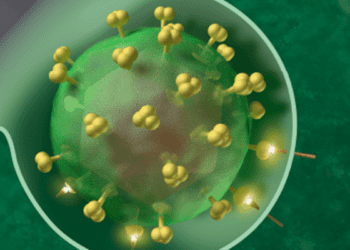Perinatal transmission of COVID-19 unlikely to occur with appropriate infection control strategies
1. Among neonates born to SARS-CoV-2-positive mothers in three New York Hospitals, none tested positive, or were symptomatic, for the virus at 24 h of life, 5-7 days of life, and 14 days of life.
2. Infection control strategies such as donning a mask around the neonate and practicing proper hand hygiene prior to skin-to-skin contact, breastfeeding, and routine care, decreased the risk of perinatal transmission of COVID-19.
Evidence Rating Level: 2 (Good)
Study Rundown: There is scant evidence around the transmission of SARS-CoV-2 from pregnant women to fetuses, particularly with breastfeeding, and the neonate’s subsequent risk of developing COVID-19 disease. This observational cohort study, which assessed mother-newborn dyads from three New York hospitals, aimed to identify the risk of COVID-19 transmission in neonates born to SARS-CoV-2 positive mothers, and to identify best practices to reduce the risk of this transmission. All neonates born to SARS-CoV-2 positive mothers between March 22 and May 17 2020 were identified, and were serially tested for SARS-CoV-2 with reverse-transcriptase polymerase chain reaction (rt-PCR) testing, with room-sharing, skin-to-skin care and breastfeeding permitted while maintaining appropriate infection control strategies (e.g. wearing a mask around the neonate, practicing handwashing, breast cleansing, and routine care). None of the infants tested positive for SARS-CoV-2 at 24 hours, 5 to 7 days, and 14 days of life. This study was limited by a small sample size, a follow-up period of one month, and limitation to rt-PCR testing as the sole indicator of SARS-CoV-2 infection transmission, which may be prone to false negative results. Nonetheless, this study is the largest cohort of neonates born to SARS-CoV-2-positive mothers, with prospective follow-up up to one month of life.
Click to read the study in The Lancet Child & Adolescent Health
Click to read an accompanying editorial in The Lancet Child & Adolescent Health
Relevant Reading: Transplacental transmission of SARS-CoV-2 infection
In-Depth [prospective cohort]: This observational cohort study included pregnant women from three New York Presbyterian hospital sites: the Komansky Children’s Hospital, Lower Manhattan Hospital, and Queens Hospital. Altogether, 1481 deliveries took place between March 22 and May 17, and 116 (8%) mothers tested positive for the virus. Among 120 neonates born to SARS-CoV-2-positive mothers, only 82 (69%) completed the follow-up at days 5-7 of life and were included in this study.
Among 82 neonates, 46 (56%) were born via vaginal delivery and 14 (17%) were preterm; 12 (15%) required admission to the neonatal intensive care unit (NICU). The median length of hospital stay was two days (range 1 to 21 days). By days 5 to 7 of life, 73 (89%) neonates were discharged home and 44 (60%) of these had a household member, other than the mother, who was symptomatic for COVID-19. At home, 62 (85%) of 73 parents always reported using masks and adhering to hand hygiene practices. As well, by days 5-7 of life, 64 (78%) of the 82 neonates were breastfed; the remaining were exclusively formula fed.
At 24 hours of life, among the 120 neonates born to 116 SARS-CoV-2-positive mothers, 119 (99%) had a negative rt-PCR and one (1%) result was invalid. Among the 79 neonates that were re-tested at 5 to 7 days of life, all tested negative for SARS-CoV-2. Eighty-two neonates had follow-up general available at this time point, and 81 (99%) were asymptomatic; one (1%) was hospitalized for hypothermia. At day 14, 72 (88%) of the 82 neonates had a repeat rt-PCR; of these, 70 (97%) tested negative and the remaining two returned invalid (further testing was not done because the neonates appeared clinically well). By day 14, 77 (94%) of 82 parents were symptom-free and were instructed to discontinue mask precautions at home. As of May 17, 53 (65%) of 82 neonates were followed up via telemedicine at one month of life, and all of them tested negative for SARS-CoV-2. The findings of this prospective cohort study therefore suggest that perinatal transmission of COVID-19 is unlikely with appropriate adherence to hygiene precautions, and that rooming, breastfeeding and other early mother-neonate bonding activities that have proven benefit remain safe with effective prophylactic strategies and parental education.
Image: PD
©2020 2 Minute Medicine, Inc. All rights reserved. No works may be reproduced without expressed written consent from 2 Minute Medicine, Inc. Inquire about licensing here. No article should be construed as medical advice and is not intended as such by the authors or by 2 Minute Medicine, Inc.








